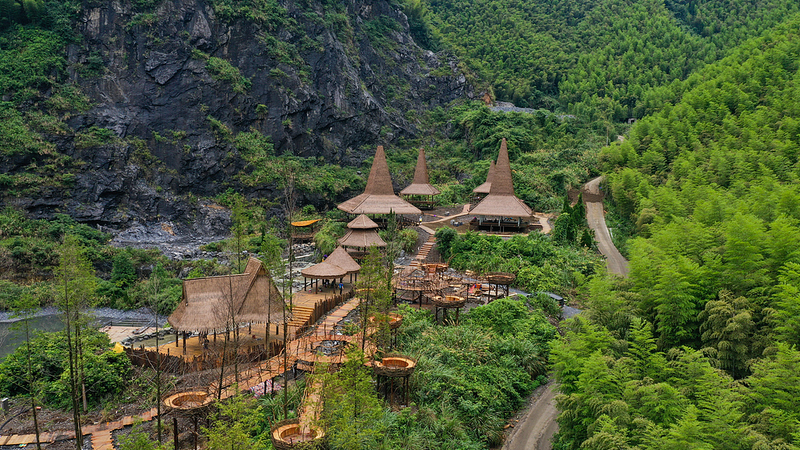In the town center of Anji County, Huzhou City, in Zhejiang Province on the Chinese mainland, a massive digital screen lights up the square. It displays real-time data on air quality, biodiversity, and carbon dioxide flux collected by over 22,000 sensors scattered across the region.
These precision sensors measure every "breath" of Anji’s renowned bamboo forests—tracking how much CO2 they absorb and store. Over the past decade, carbon sequestration has climbed to 6.6 tonnes per hectare. The result? These "carbon storage champions" generate tradable carbon credits, translating into more than 28 million yuan (about $3.7 million) annually for local bamboo farmers.
Anji is also celebrated as the birthplace of the "Lucid waters and lush mountains are invaluable assets" concept, first proposed by Xi Jinping when he was secretary of the Zhejiang Provincial Committee of the Communist Party of China in 2005. This "Two Mountains" theory argues that strong environmental stewardship can fuel high-quality economic growth.
"The carbon market is the most direct way of turning ecological value into economic value," says Wang Jun, founder of Climate Future China, revealing how innovative policies and technology combine to supercharge green finance in the region.
This model offers a blueprint for other regions aiming to harness nature for profit—where protecting forests and restoring wetlands isn’t just good for the planet, but also a pathway to sustainable prosperity. As more governments and businesses tap into carbon trading, Anji’s story shows how eco-investments can yield real-world returns.
For young global citizens and entrepreneurs, Anji’s example is a reminder that the next big investment frontier might lie in leaves and landscapes. It’s a call to rethink how we value natural resources—and to see the green economy as an engine of growth and environmental justice worldwide.
Reference(s):
How China's carbon trading market is delivering 'mountains of gold'
cgtn.com




